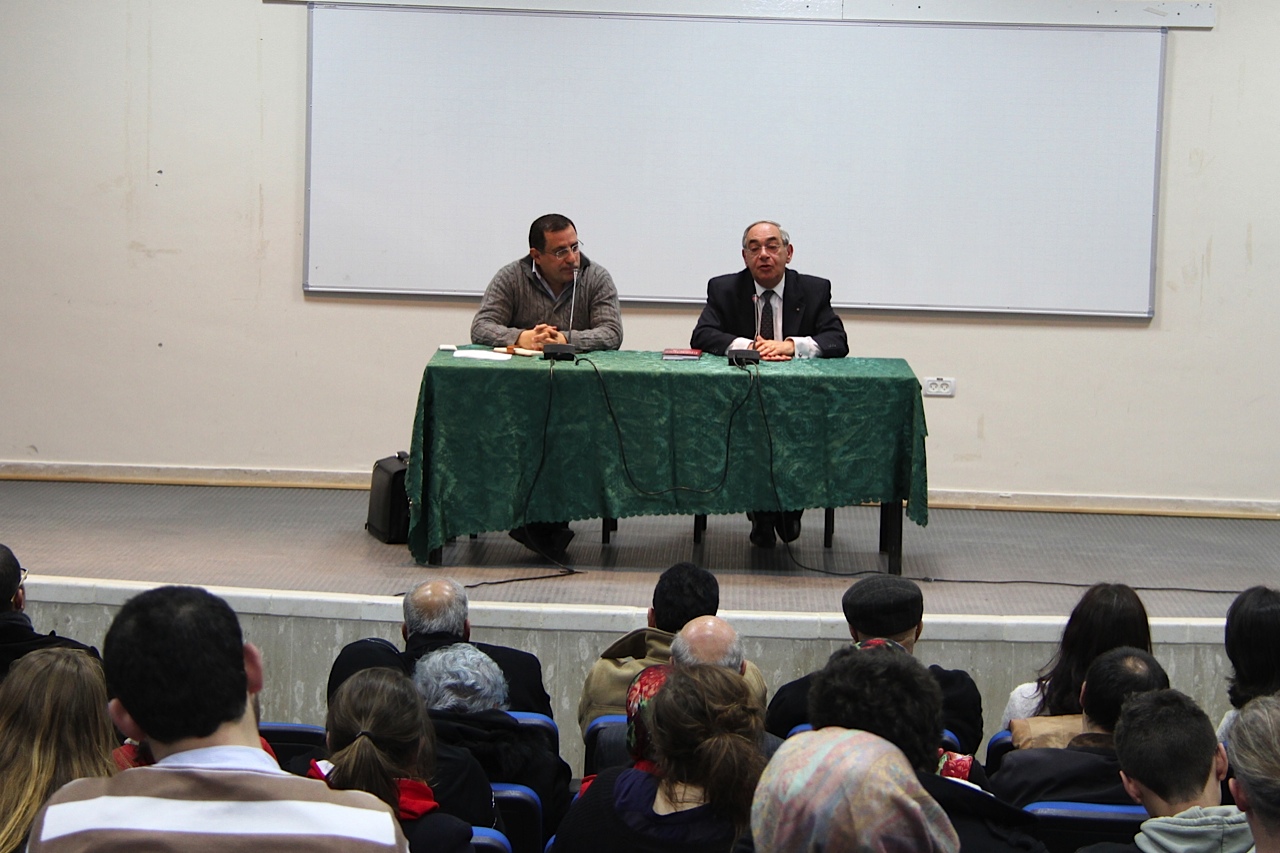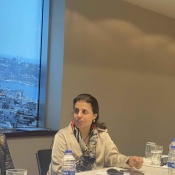Ambassador Safieh Lectures on US-Israeli Relations, Asking “Is Israel an Ungrateful Ally?"
On March 12, 2014, as part of its diplomatic meetings series, the Birzeit University Ibrahim Abu Lughod Institute of International Studies hosted Palestinian diplomat Afif Safieh to give a lecture on the US-Israeli relations.
In an attempt to diagnose the current Palestinian situation, Safieh indicated that the Nakba is not just an event that took place in 1948, but an ongoing event. Safieh highlighted the difficulties faced by Palestinians in Gaza, Jerusalem and the West Bank, as well as in host countries, specifically in Syria, in which the Palestinian refugees are suffering from killing and displacement on a daily basis.
Safieh said that the goal of Israeli policy is to annex land as much as possible with the least population density. Safieh noted that the Palestinians have been trying to make peace for 20 years, all while Israeli settlements have been expanding. Whereas the Palestinians were committed to their obligations towards the international community, did the international community fulfill its obligations towards the Palestinians? This is a big challenge. Safieh said that the diplomatic impasse is not due to real Arab rejection of Israel's existence, but rather is a result of a lack of Israeli readiness to withdraw from the Palestinian territories and end the occupation. The world must understand that Israel is the real obstacle to a successful peace process, and what is needed now is not a peace process, but pressure from the international community on the Israeli side, Safieh added.
Speaking about President Obama’s administration, Safieh said that the first thing he did when he came into office was to call President Mahmoud Abbas. The first decision in international affairs he made was the appointment of former Senator George Mitchell as American envoy to Palestine, in addition to visiting Istanbul and Cairo, where he underscored the need to start new relationships with Arab and Islamic countries. When he spoke about the peace process, Obama pointed to the need to stop Israeli settlement expansion.
In Obama's second term, however, the US president has committed several mistakes, Safieh said. He has been unable to read the changes occurring in the Jewish community in America, and that a large part of Jewish society in the United States is opposed to Israeli measures.
Analyzing US-Israeli relations, Safieh addressed two schools of thought: the first believes that the superpower imposes its policy on the regional ally in line with the superpower’s aspirations, as argued by Noam Chomsky. The second school of thought believes that the United States should adopt Israel’s strategy in all its policies, and thus the US administration does not adopt the policy that necessarily reflects its wishes and needs. Safieh added that the United States suggested that Israel become a member of NATO, but Israel refused to do so because this imposes restrictions. The Palestinians have to win their battle in Washington. This is possible but demands hard work by the Palestinians, Safieh concluded.







